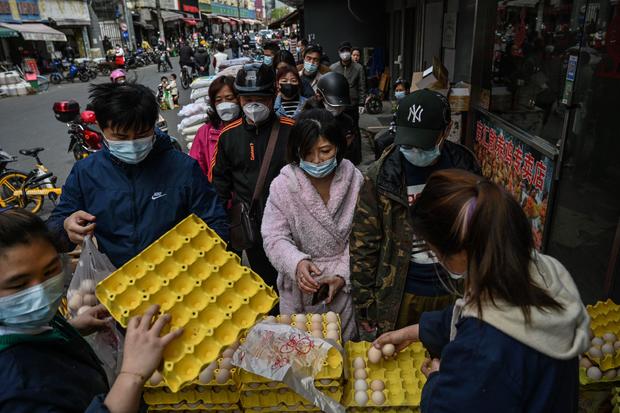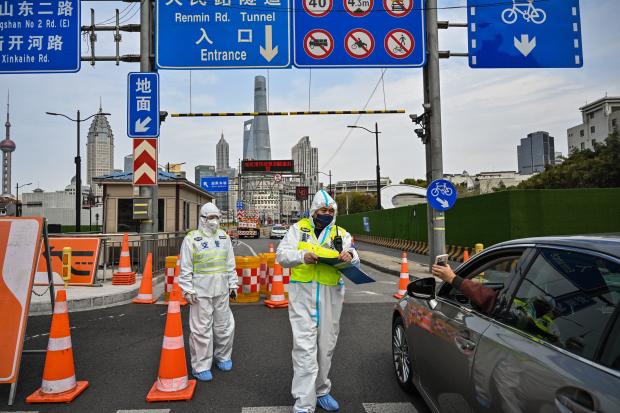China locks down Shanghai, its biggest city, as Omicron fuels record surge in COVID cases
China's biggest and wealthiest city, Shanghai, is shutting down amid a surge of new COVID-19 cases. The 25 million residents of China's financial capital will be locked down in two stages, starting with the eastern half, which falls under the restrictions from Monday for five days. The lockdown will then shift to the other half of the city.
Streets in the normally bustling metropolis were deserted Monday as the lockdown took effect and all of its 25 million residents were told to line up for COVID tests.
The two-phase lockdown is China's biggest coronavirus closure since the city of Wuhan — believed to be the origin of the pandemic — was shuttered two years ago.
Over the weekend, residents flocked to Shanghai stores in a rush of panic buying that saw shelves emptied and even some fights as shoppers loaded up their carts.
From Monday, all residents must stay home in Shanghai's eastern Pudong district, which includes its primary international airport and the financial hub. Deliveries will have to be left at checkpoints on the edge of shuttered neighborhoods and only essential businesses will be permitted to open. Public transport was shut down, too.
Under China's "zero-COVID" strategy, aggressive city lockdowns have not been unusual, but closing down all of Shanghai at once was apparently not an option.
The city is a global hub for finance and manufacturing and a major international port, so the two-phased approach is a bid by Chinese authorities to minimize the disruption to business and world trade. The lockdown will shift from Pudong to the city's more populous western half of Puxi for four days in early April.
Shanghai has struggled to control a surge in Omicron cases for almost a month. Cases are still low by Western standards, with 3,500 positive tests on Monday, but that's a record number for the city, and China's locally-developed vaccines have been rated less effective than those in the West, so the new wave has cast doubt on China's ability to prevent the variant from taking hold.
The government said it was taking the drastic steps in Shanghai to detect infections and limit the spread "as soon as possible."
But as China imposes new lock downs, some of its neighbors are easing up.
Singapore was set to loosen restrictions on workplace capacity and social gatherings in the coming days, and the Philippines and Malaysia were to lift bans on foreign tourists who are fully vaccinated.
In Japan, which has been notably cautious about reopening, there were still no plans to welcome foreign travelers back anytime soon.







